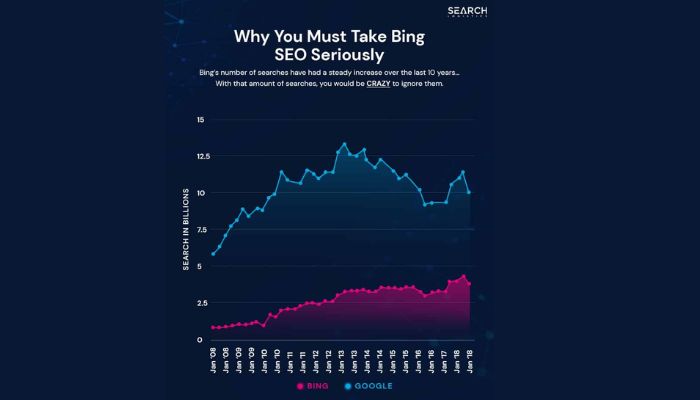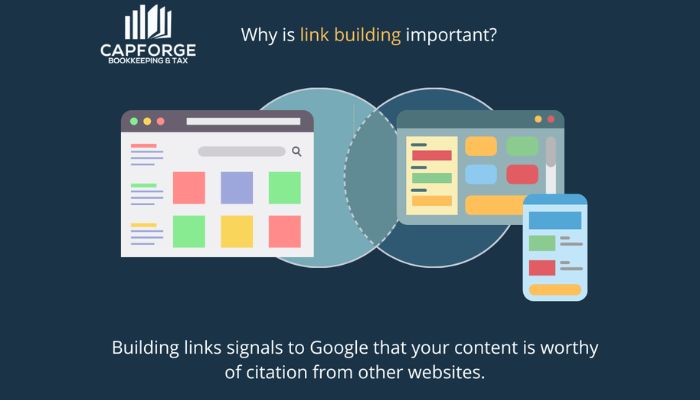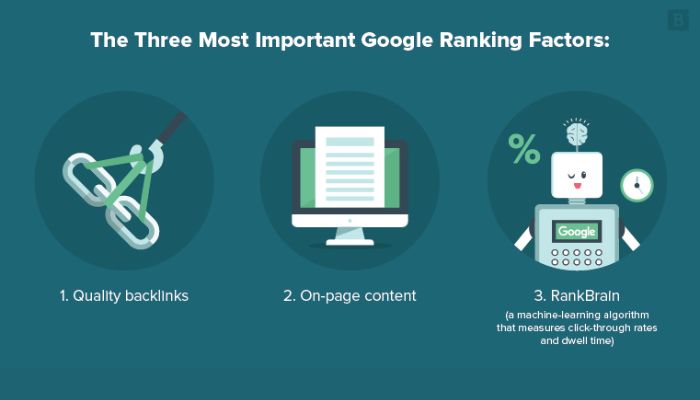SOCIAL
Effective Strategies for Link Building on Bing and Google

Search engine optimization (SEO) relies heavily on link building to boost a website’s ranking. While both Bing and Google employ link building as an effective SEO tool, their algorithms differ in the intensity with which they consider links when deciding page rankings.
Because of this, honing your link building strategies according to the specific search engines is essential for successful SEO efforts that yield long-term visibility online.
This primer will provide an introduction to the role of links for Bing and Google as well as explore specific strategies for building effective backlinks in each. From understanding link-based ranking factors to pinpointing the best practices for both engines, this article will provide you with essential information used by SEO professionals to propel pages up the SERPs.
Understanding Bing’s Link Building Factors
Domain authority and relevance
When building strong links for Bing search, one key factor to consider is domain authority and relevance. Domain authority tells Bing how legitimate a link is – if the pages that link back to your site have higher quality content than yours, or are located in more relevant domains within the same field of expertise, those sites will send you stronger signals.
Relevance falls in line with this concept and is important because if your outbound links lead visitors away from topics pertaining to your niche it won’t be considered a “quality” link.
Additionally, having outgoing links leading to bad pages could create a penalty that lowers your rankings. To help build the perfect SEO strategy using domain authority and relevance, Bing Webmaster tools are useful in gathering important insights related to link building.
Quantity and quality of backlinks
Quantity and quality of backlinks are both integral components to successful link building strategies on Bing. The quantity of links shows how valuable the pages linked to are and indicates that many other websites recommend it.
Quality matter most to the search engine but must still be varied in order for a page or website’s SEO value to reach its full potential. This means linking out from unrelated industries, sources with strong domain authority, and using multiple anchor texts – all of which broaden the visibility of a website through showcasing its unique value.
Importance of anchor text
Anchor text is one of the most important link building factors for Bing’s search algorithm. Using relevant keywords in anchor texts helps to show the subject and context of the content that the user can expect when visiting a website from a link.
Bing places additional value in specific phrase matches, so exact matches to relevant target terms should be used wherever possible to optimize rankings on this platform. Compelling descriptions, but more general than an exact match, also help tell cues about what would be found when clicking through from a link.
Strategies for Building Links on Bing
Creating high-quality, relevant content

Creating high-quality, relevant content is an essential link building strategy for Bing. Relevant and authoritative content not only builds trust and authority with visitors but likewise helps Bing’s algorithm recognize and credit your site accordingly. High-quality content ensures it ranks well on SERPs which encourages users to click through to the page more often.
Factors like bounce rates, time spent on pages, ROI etc play a vital role in determining higher search engine rankings, therefore, increasing traffic as a result of engaging copy is key when building links on Bing. Content should also be updated regularly and include keywords which as well add another layer of link value for SEO purposes.
Conducting outreach and guest posting
Conducting outreach and guest posting can be an effective strategy for building links on Bing. Reaching out to relevant, authoritative websites in your industry to secure backlinks to your content is key.
Having related topics and website material that follows the editorial guidelines of high-quality websites can increase chances of being featured as a guest contributor.
High-value features come with appropriate anchor texts in consistent link usage patterns, favorable placement within articles for increased prominence, and strategic internal linking—all important qualities thoughtfully considered by Bing’s linking algorithms.
Engaging in social media promotion
Engaging in social media promotion is an effective strategy for building links on Bing. Social signals such as likes, shares, retweets and mentions play an important role in boosting the visibility of content while helping to generate backlinks.
In order to make social media offer real value, it is essential to post quality material that adds relevance and engages audiences. The more people are interested in a website or brand’s content, the higher chance they have of sharing these resources which generates valuable backlinks.
Given that social media plays a part within Bing’s algorithm, including this as link-building strategy should be an integral factor in any SEO campaign.
Leveraging local directories and business listings
Leveraging local directories and business listings is an effective link building approach for Bing. When done strategically, claiming and optimizing profiles on music services and directory websites can be a powerful tool for improving search engine visibility, especially among geographically-specific audiences.
The key to getting the most out of this type of link building is determining which sites are favored by the specific search algorithm rankings that you are looking to influence.
Get your brand listed with the top pertinent types relevant to your industry — not just Google My Business. Additionally, find smaller, niche-specific directories to better target potential customers.
Utilizing Bing Webmaster Tools for insights and optimization
Utilizing Bing Webmaster Tools for link building is an effective strategy to maximize the return on boosting SEO. The tools provide insights into both internal and external link structures, anchor text data, page authority, broken links and much more.
It reveals URLs of websites that are not indexing properly in terms of Google or third-party programs used for backlink auditing tools. Additionally, marketers may employ some tracking codes within the tool for optimization insight.
Most notably Webmaster Analytics shows how successful identification activities actually are. Proper implementation and data interpretation may result in winning the domain’s arrival into top SERP impact.
Understanding Google’s Link Building Factors

Domain authority and PageRank
Google’s link building factor of domain authority assesses overall online trust in a given website, signifying relevance and quality. PageRank is Google’s proprietary measure of a websites’ importance; it uses the backlink structure between diverse sites to assign an approximate metric for each page. Linking to or from websites with higher PageRanks show increased SEO benefits due to being seen as valuable and authoritative by search engine algorithms.
Natural and diverse backlink profiles
When aiming to rank highly in Google, it is important to focus on building a natural and diverse backlink profiles. Search engines value websites that have overwhelmingly organic rather than artificial links pointing to their site’s pages.
Additionally, link profiles should be fragmented so that not all of the links are using the same anchor text or come from identical sources. Link diversity also applies when looking across main link types such as industry-specific directories as well as domain origins like (.gov, .org). Domain trustworthiness is another important factor for both Bing and Google search.
Importance of anchor text diversity
Anchor text diversity is an important factor that Google considers when evaluating links. This factor assigns a portion of a website’s relevance to the keywords used in linking sites or texts.
It’s best practice to use more than one keyword for anchor text in order to far more accurately depict what content it points toward and express its overall relevance better.
Too much repetition of anchor text can make search engine algorithms see links as less natural and manipulated, which can damage rankings if they observe the same phrases being emphasized over and over again.
By leveraging diversity within anchor texts to maximize rankings, websites can receive better link evaluation from both Bing and Google search engines.
Relevance and authority of linking domains
Google place a high importance on link relevance and authority, which means that links should primarily come from applicable sources within an industry or network.
They evaluate the quality of domains through similarities in top-level categories and topical area weighting. Google also have sophisticated algorithms for evaluating the trust and authority of each domain by closely looking at the data signals behind linking domains to ensure their trustworthiness. Google bonds whether these linking websites represent a quality source worth trusting with its algorithm rewards.
Strategies for Building Links on Google

Developing comprehensive and engaging content
Search engine optimization (SEO) is built on the foundation of producing content that will naturally develop high-quality link signals for Google. Developing comprehensive and engaging content allows more potential opportunities for organic backlinks to a website or blog. Comprehensive, quality pieces provide deeper information and insights compared to other forms of superficial content.
A good goal when creating this sort of content is to include features such as audio, video, infographics or reviews in order to disproportionately influence link building so that you set yourself ahead of the competition. Such features add to the perceived quality of the content and appeal to more readers, as well as other webmasters who may link to such uniquely engaging pages.
Earning backlinks through outreach and relationship building
Earning backlinks, however, has remained much the same. Outreach and relationship building continues to be crucial component in acquiring quality links from reputable sources. Leveraging direct relationships by emphasizing mutual benefits is key when asking for a link.
Additionally, participating in trade shows, events and conferences can start conversations that might then increase one’s chances of getting recognized by an industry leader who is almost always on the lookout for partners capable of boosting audience engagement with fresh topics or materials they value.
Guest blogging on reputable websites
Guest blogging is a great way to build links on Google. These posts involve writing and publishing articles on relevant, high-authority websites related to your field or industry. These linkbacks increase chances of putting your target pages in improved rankings with this powerful off-page SEO activity. It also builds brand awareness and reaches leveraging established platforms.
When looking for the perfect website to submit your piece make sure it’s an authoritative one with positive engagement, natural visibility, reputable status built around similar topics and original content boasting engaged followers. Guest blogging for building high-quality links is a powerful strategy to do better in search engine rankings with organic, honest link-building activity.
Participating in industry-specific forums and communities
Industry-specific forums and communities are a great way to build links on Google, allowing for greater reach with like-minded peers in your industry. Creating genuine relationships by preferably being active contributors can lead to other members reaching out with potential opportunities for guest blogging or extended coverage.
Partaking in site interviews or sharing advice is another choice avenue to gain visibility as well. Whatever the forum resolution, always be sure that any contribution is informative whilst avoiding aggressive marketing tactics – such as link farming – which could incur penalties from Google.
Conclusion
Link building is an essential part of any comprehensive SEO strategy and entails adhering to multiple factors influenced by the individual values of both Bing and Google.
Developing a comprehensive approach that includes relevant content development (including guest blogging), outreach, social media promotion, leveraging local directories, relationship building, and investing in anchor text diversity when linking back, as well as taking advantage of the available webmaster tools serves many long-term benefits.
Regular monitoring and adjustments via thorough link analyses are needed to optimize link performance across both search engines.

















